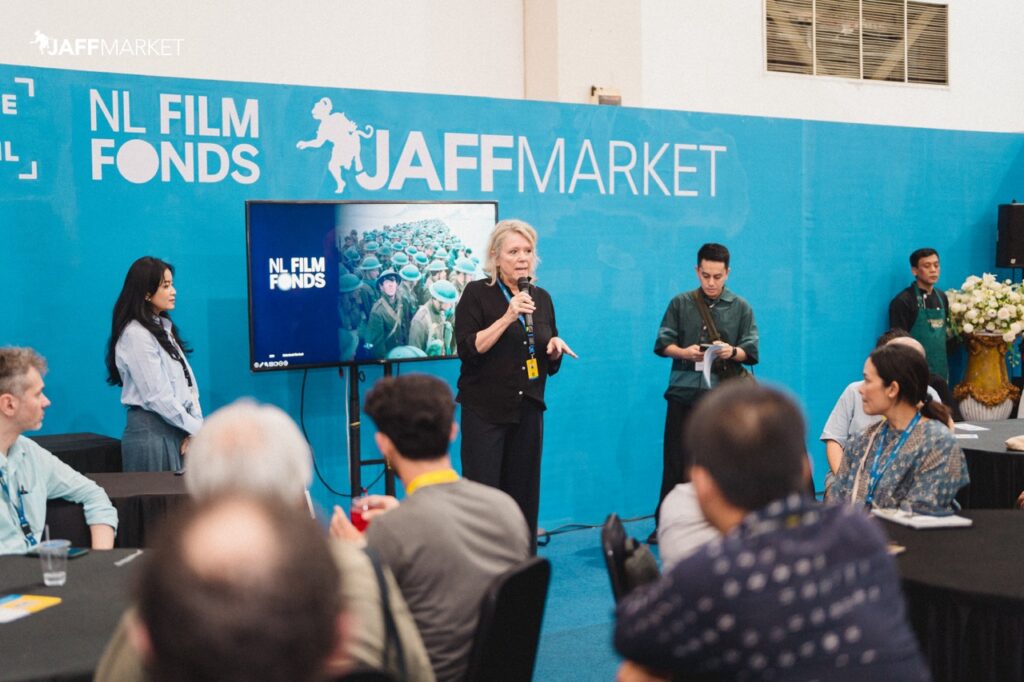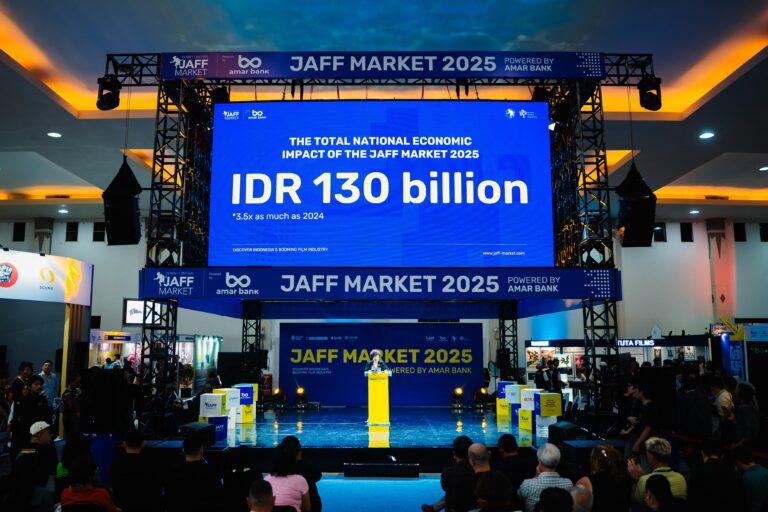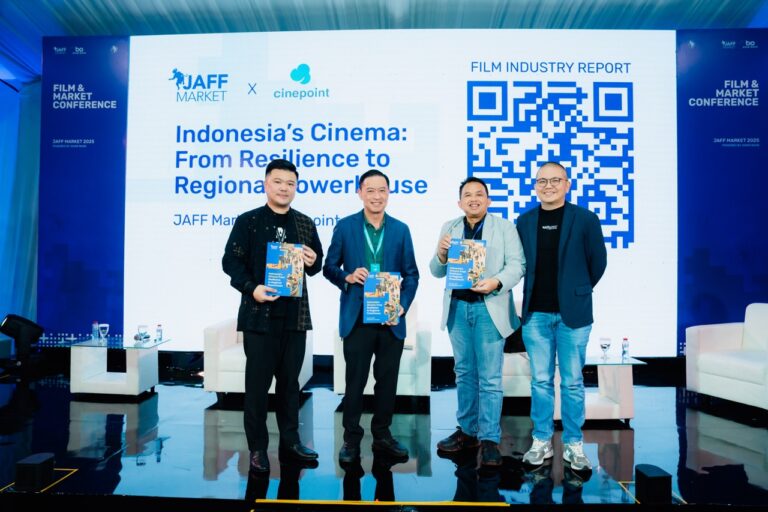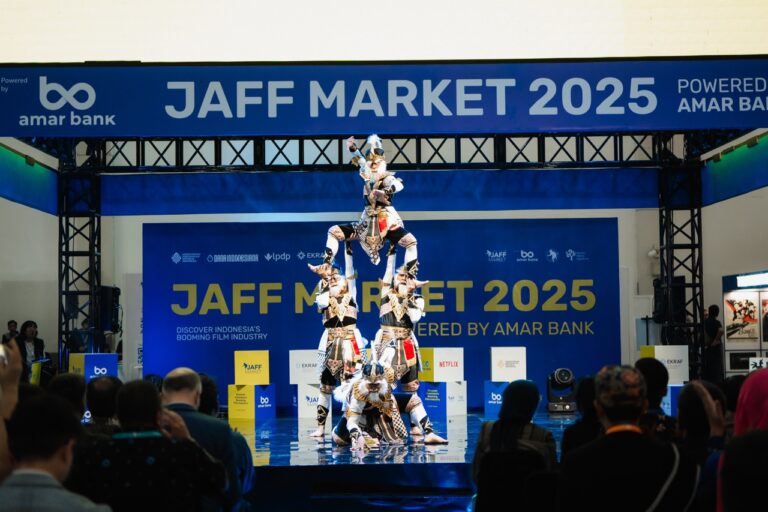Producers, Take Note: Lessons in International Film Co-Production from JAFF Market
23
Sep 2025
by JAFF Market
As Southeast Asia’s screen industries continue to evolve, one thing is becoming clear: cross-border collaboration is no longer just a creative experiment, it’s a necessity. From financing and talent development to distribution and market access, international co-productions now sit at the heart of the region’s filmmaking future.
This shift is especially visible at JAFF Market, the industry platform of the Jogja-NETPAC Asian Film Festival (JAFF). Designed as a meeting ground for producers, funders, and creative talent across Asia, JAFF Market has emerged as a vital hub where co-productions are seeded, shaped, and launched. Among its most notable initiatives is the JAFF Future Project (JFP), a program dedicated to supporting bold, globally relevant projects that emerge from Southeast Asia and beyond.
The Silent Village and the promise of shared storytelling
One standout from the 2024 JFP lineup was The Silent Village, a Malaysian-Indonesian feature directed by Ho Yuhang, co-written with Indonesian screenwriter Prima Rusdi, and produced by Lorna Tee under the Paperheart banner. Inspired by real-life shaman-linked serial killings that shook Indonesia in the 1980s and 1990s, the film follows a detective investigating a woman’s body found in a sugarcane field, slowly uncovering a web of trafficking, silence, and political tension.
It’s a haunting, socially rooted narrative that resonated with audiences and buyers alike. But the project stood out for more than its story. The Silent Village became a case study in how regional co-productions can thrive when there’s shared vision, structured support, and access to the right networks. The project walked away from JAFF Market 2024 with two key accolades: the Kongchak Award and the BSM Award, validating both its artistic potential and market viability.
As Linda Gozali, Market Director of JAFF Market explains, “Co-producing isn’t just about finding funding. It’s about deepening your story, layering it with different perspectives, cultural insights, and lived experiences. That’s why JAFF Market exists: not just as a marketplace, but as a space for creative intelligence to meet.”
A growing regional ecosystem for co-production
Too often, co-productions are reduced to budget-splitting exercises. JAFF Market promotes a more holistic approach, one that aligns creative goals with a distribution strategy and that nurtures real trust across countries. The numbers reflect that momentum: in its first year, JAFF Market hosted 6,723 participants from over 20 countries, with 151 exhibition booths and 243 curated meetings supporting 10 selected projects through the JFP.
This ecosystem is not just benefiting filmmakers. Regional institutions from cultural agencies to national film boards are beginning to treat JAFF Market as part of their cultural diplomacy infrastructure. Countries like Malaysia, South Korea, and the Philippines now include JAFF Market in their industry calendars, recognizing it as a valuable node where policy, funding, and talent intersect.
JAFF Market’s reach is also expanding into East Asia and Oceania, deepening ties with partners in Japan, Korea, and Australia. As Ajish Dibyo, Executive Director of JAFF Market explains,
“Creative industries need structured spaces to build trust, especially when working across languages, legal systems, and production cultures. JAFF Market helps bridge those gaps with intentionality and care.”
That same spirit of inclusion extends beyond film. With programs like JAFF Content Market (JCM), creators in animation, games, and serialized digital formats are also finding space to access international co-production networks and unlock new distribution models. The goal is not just to support feature films but to build a resilient, multi-format content ecosystem.
Looking ahead: flexibility, strategy, and shared ambition
Co-productions come with real-world challenges from navigating censorship to negotiating IP rights and bridging language barriers. But with the right support including legal mentorship and strategic pitching, those challenges can be overcome. JAFF Market is actively helping creators move through that complexity, offering both structure and community.
For many Southeast Asian filmmakers, this means rethinking distribution strategy from the start. Should the film premiere at a festival? Run theatrically? Go straight to OTT? Or, all of the above? These questions now shape everything from genre choices to narrative structure.
Ultimately, projects like The Silent Village show what can happen when teams are bold, open, and strategically aligned. The result isn’t just a film, it’s a roadmap. A signal that Southeast Asian storytelling is stepping confidently into a future that’s regionally grounded, globally resonant, and collectively built.



